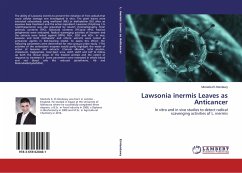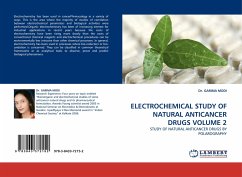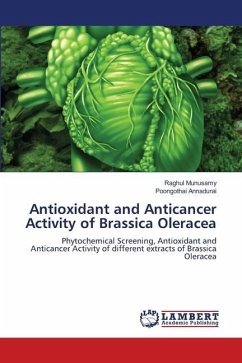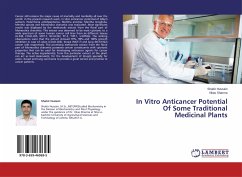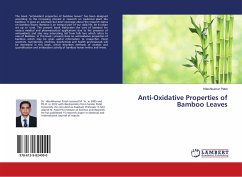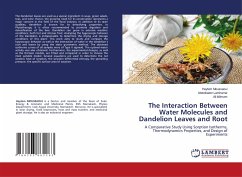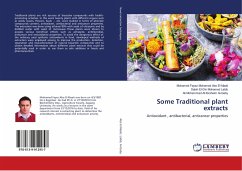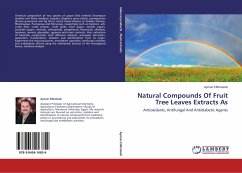The ability of Lawsonia inermis to prevent the initiation of free radicals that cause cellular damage was investigated in vitro. The plant leaves were extracted exhaustively using methanol (ME) or diethylether (EE) after an aqueous base treatment and the active ingredient, Lawsone (2-hydroxy 1,4-naphthaquinone) was also separated by column chromatography. Total phenolic contents (TPC), flavonoid contents (TFC)and HPLC fraction polyphenols were evaluated. Radical scavenging activities of lawsone and the extracts were tested against DPPH, NO-, SOD and HO-. In vivo, lawsone and both methanolic and etheric extracts were tested as anticancer agents in EAC-bearing model. To assess this effect, the following parameters were determined for mice groups under study. 1-The activities of the antioxidant enzymes would partly highlight the mode of action of lawsone and extracts. 2-Serum albumin, total protein, cholesterol, triglycerides, total lipid, urea, sGOT, sGOT and ALP to follow up both the clinical status of the treated animals and the extent of response to treatment.3- Some parameters were estimated in whole blood and red blood cells like reduced glutathione, Hb and Malondialdehyde(MDA).
Hinweis: Dieser Artikel kann nur an eine deutsche Lieferadresse ausgeliefert werden.
Hinweis: Dieser Artikel kann nur an eine deutsche Lieferadresse ausgeliefert werden.

